MercoPress. South Atlantic News Agency
Tag: UK economy
-
Tuesday, February 5th 2019 - 06:15 UTC
Impact of a “no deal Brexit” for the tourism industry and jobs in UK

Over 300,000 jobs could be at risk in the Travel & Tourism sector in the United Kingdom and almost 400,000 in Europe if the UK leaves the EU without a deal on 29 March, according to a new analysis from the World Travel & Tourism Council released on Monday. A “No Deal” Brexit would have a damaging impact on one of the UK’s most important economic sectors.
-
Tuesday, December 18th 2018 - 09:03 UTC
UK economy growth feeling the uncertainty impact of Brexit: weakest since 2009
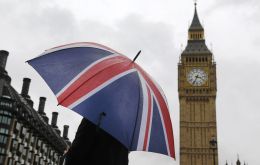
British economic growth this year and in 2019 looks set to be the weakest since the country’s last recession, due to a freeze in business investment and weak consumer demand ahead of Brexit, the British Chambers of Commerce forecast on Tuesday.
-
Monday, November 5th 2018 - 08:18 UTC
The UK's Real Living Wage goes up to £9 an hour
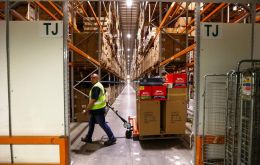
UK residents working for an employer who has voluntarily signed up to the real Living Wage are set for a 2.8% pay rise this week. For the first time they will receive £9 an hour. This is not to be confused with the compulsory National Living Wage, which is currently £7.83 an hour for anyone over the age of 25.
-
Monday, October 15th 2018 - 08:04 UTC
UK economic low growth anticipated for next three years, with or without a Brexit no deal

United Kingdom can expect low economic growth for the next three years, while a no-deal Brexit could dent growth even further, says a forecasting body. The EY Item Club predicted GDP growth of 1.3% this year and 1.5% in 2019, down from 1.4% and 1.6% respectively in its previous outlook three months ago.
-
Tuesday, September 18th 2018 - 08:51 UTC
IMF's Lagarde: A no-deal Brexit would entail substantial costs for the UK economy
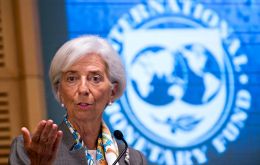
The International Monetary Fund has warned that a “no-deal” Brexit on World Trade Organization terms would entail “substantial costs” for the UK economy. IMF said that all likely Brexit scenarios would “entail costs”, but a disorderly departure could lead to “a significantly worse outcome”.
-
Wednesday, September 12th 2018 - 08:21 UTC
Brexit threatening prospects of Jaguar and Land Rover, according to Tata Motors
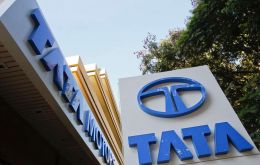
Protracted Brexit talks are weighing on the recovery prospects of Jaguar Land Rover, according to its Indian owner. The focus of Tata Motors, which bought JLR in 2008 from Ford, is to ensure the automaker remains financially strong in the face of the challenges, Tata Sons Chairman Natarajan Chandrasekaran said in an interview over the weekend. Tata Sons is the parent of Tata Motors.
-
Tuesday, September 11th 2018 - 08:33 UTC
UK economy outperforms boosted by services and construction sectors

The United Kingdom economy bounced back in July as the services sector rebounded and construction output reached a record high. The Office for National Statistics (ONS) said the economy expanded 0.3% in July, while gross domestic product (GDP) rose 0.6% on a three-month basis.
-
Thursday, June 14th 2018 - 08:54 UTC
UK inflation steady at 2.4% in May, but fuel prices are climbing fast

Inflation in the UK remained at 2.4% in May, according to the Office for National Statistics (ONS), after its fall was halted by a sharp rise in fuel costs. The ONS said that fuel prices increased by the biggest monthly amount since January 2011, rising by 3.8%.
-
Thursday, June 7th 2018 - 08:25 UTC
The terrorism 2004/2016 bill cost the UK 43.7bn Euros, says Rand Europe

Terrorism has hit the UK’s economy harder than any other EU country in recent years, according to a study. Analysis found the UK lost an estimated 43.7 billion Euros (£38.3 billion) in GDP terms due to terrorist activity from 2004 to 2016, according to a report published by the Press Association.
-
Thursday, May 3rd 2018 - 08:13 UTC
Euro zone economy grows faster than the UK in the first quarter
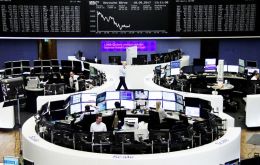
The European Union economy slowed in the first quarter of the year, official Eurostat figures have showed. Economic growth in the Euro zone slowed to 0.4% for the period from January to March 2018, compared with 0.7% in the previous quarter. Growth in the 19-country single currency bloc reached 2.5% year-on-year.
